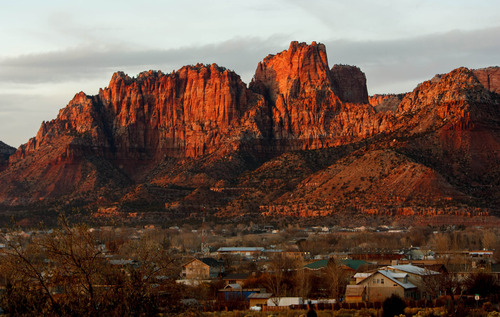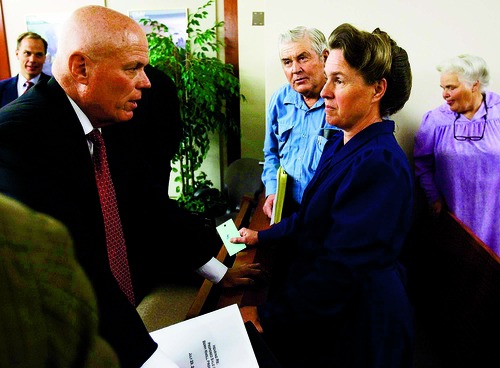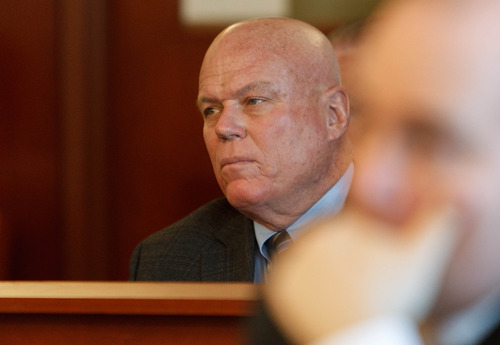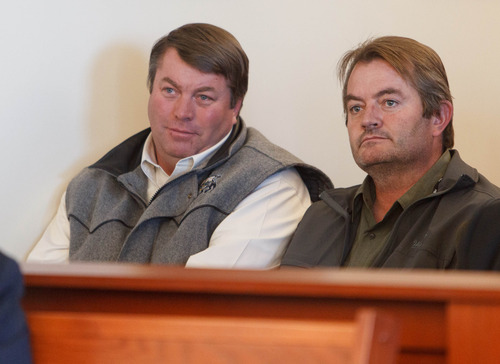This is an archived article that was published on sltrib.com in 2013, and information in the article may be outdated. It is provided only for personal research purposes and may not be reprinted.
A Utah judge has 24 candidates to choose from as she considers assembling a board that would oversee the redistribution of homes and property in Warren Jeffs' polygamous sect on the Utah-Arizona border.
Two dozen people applied for the panel by Monday evening's deadline, Utah court officials said. Seven of the applications came in after the deadline was extended in mid-August in a move by state officials to get a pool with as many qualified applicants as possible.
Third District Court Judge Denise Lindberg will review the applications in search of people who can make decisions independently of any outside influence and in the best interests of the residents of Hildale, Utah, and Colorado City, Ariz.
She must select at least five board members, and as many as seven. They don't need to be members of the polygamous sect, and can be from anywhere. The applicants' names were withheld.
If Lindberg doesn't feel there are five qualified people, she can discard the idea of creating a board and send the process back to square one. There is no set date by which she must make a decision.
The 750 homes are part of a trust that has been tied up in the courts since it was seized by Utah in 2005 over allegations of mismanagement by Jeffs and other leaders of the Fundamentalist Church of Jesus Christ of Latter-Day Saints.
The state's goal has always been to return the homes and a scattering of property — worth an estimated $118 million — to community members. The creation of the board is still likely months away, and decisions about the homes even farther down the line, but this is one of the first steps toward a resolution.
Residents are eager to have the matter settled.
"There is such a sense of uncertainly," said Bonnie Peters, executive director of Safety Net, a coalition of agencies that provides support and services to polygamous communities. "They don't know what will happen. Nobody knows, really, who owns the homes. It has to be resolved."
Peters said she is fairly optimistic a good board can be created among the candidates. She said the one applicant she knows is an honest person who would do well. She declined to identify him.
Many of the estimated 7,500 people living in Hildale, Utah, and Colorado City, Ariz., are still followers of Jeffs, who is serving a life sentence in Texas for sexually assaulting two underage girls he considered his brides. The Fundamentalist Church of Jesus Christ of Latter-Day Saints is a radical offshoot of mainstream Mormonism whose members believe polygamy brings exaltation in heaven. Jeffs is trying to lead the sect from jail.
Others have left and feel they have a rightful claim to homes they built, maintained or lived in. That sets up many difficult decisions for the board.
Bruce Wisan, a Salt Lake City accountant who was put in charge of the trust, predicts there will be multiple claims on at least a third of the homes in the trust. Some homes were built by one person, then maintained and lived in by another, he said. In other cases, several different people have lived in a house over the past two decades.
None of Jeffs' followers are expected to be on the board because he has prohibited them from participating.
Willie Jessop, Jeff's former bodyguard who has left the sect, said he's confident at least five trustworthy people can be found to run the trust. He's worried, however, that Wisan and his attorneys will hinder the board's creation so they can continue to be paid. The state of Utah is in the process of paying $5.6 million it owes to Wisan and other firms hired to run the communal land trust.
"There is clearly a path out of this mess," Jessop said. "But I don't think that will ever happen until those who are getting paid have an incentive to not foil the process."
Wisan said managing the trust has diverted his time and energy from his accounting firm, and he has no intention of being a roadblock. He said he and other firms weren't paid for the first three plus years, and will get just $1.1 million of the state's payout.
"My CPA practice has been hurt by my involvement in this trust," Wisan said. "But I don't want to get out until this been a success."









